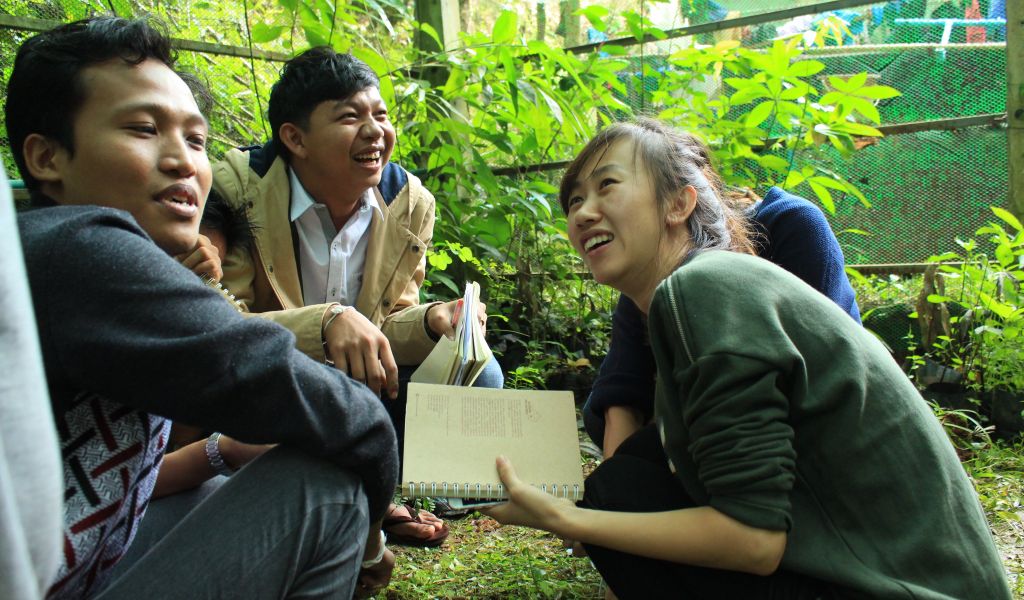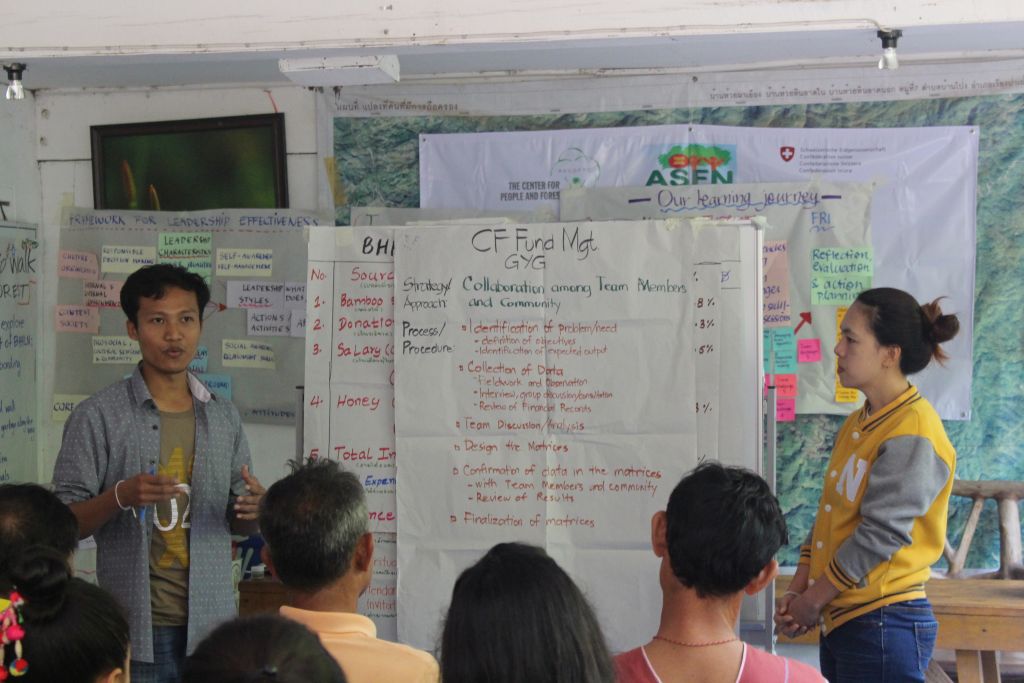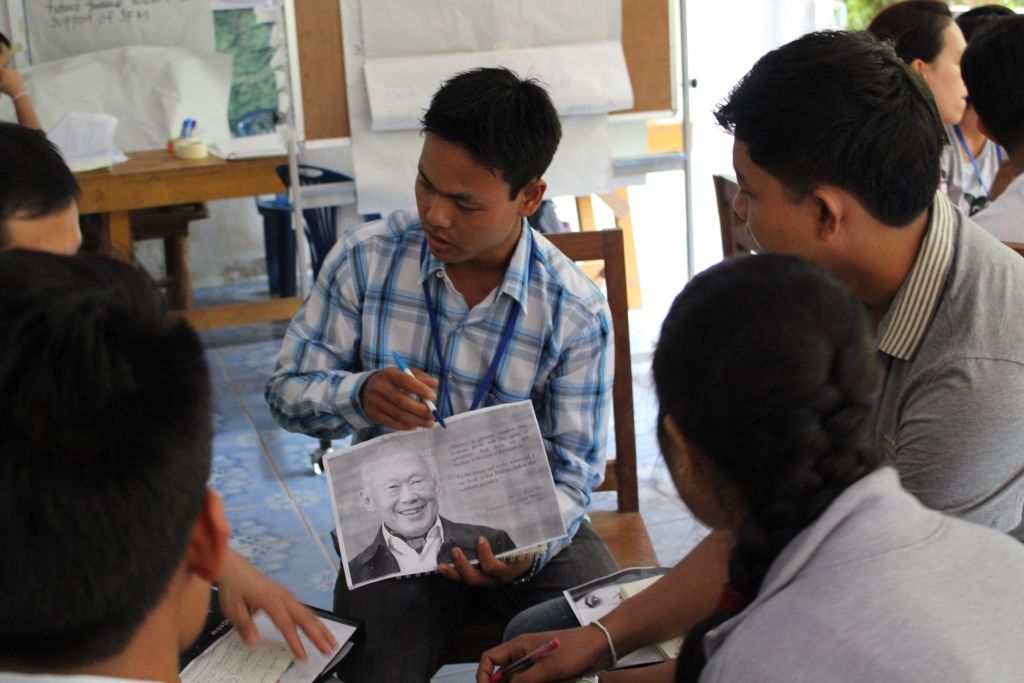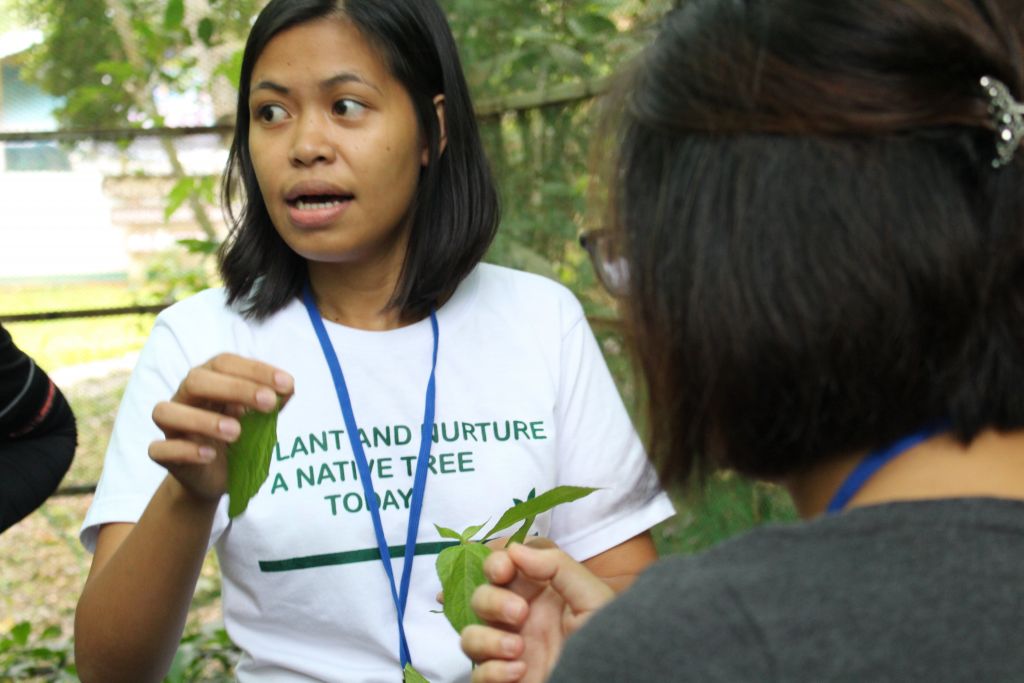Cultivating our future forest leaders

Tucked away in a lush valley in Chiang Rai province of Northern Thailand, the small, ethnically Karen community of Baan Huay Hin Lad Nai stands as a beacon for sustainable forest leaders around the world. In 2013 the Untied Nations awarded Mr. Preecha Siri – a leader in the community – with a coveted UN Forest Hero Award, pointing to the 107-person village as a global model for community forestry.
One would be hard pressed to find a more appropriate location for a Leadership Camp for Sustainable Forest Management. The 18 young forestry professionals from across the Asia Pacific joining in the weeklong training course are perfectly positioned to develop their capacities through community engagement and participatory learning approaches.
“This is the first time I have seriously thought about my leadership abilities,” admits Tu Hoang, from Vietnam...
“This is the first time I have seriously thought about my leadership abilities,” admits Tu Hoang, from Vietnam, after a session aimed at helping participants identify individual leadership qualities, characteristics and behaviors. “I am getting the chance to reflect on my leadership style and my strengths and weaknesses,” she says.

Throughout the week, participants are tasked with a variety of assignments aimed at sharpening their leadership competencies in the areas of self-awareness, self-management, social awareness, relationship skills, responsible decision-making and community engagement. Some assignments are discussion-based – challenging participants to unpack complex concepts and ideals. Other sessions focus on hands-on activities – pushing participants to think on their feet, improvise and communicate.
For example, in a role-play session aimed at teaching how to manage team dynamics, participants are secretly assigned difficult behaviors to emulate (i.e. dominator role, withdrawer role) and separated into three teams. Each team needs to work together to deal with the challenging behaviors within the group and with the other teams to reorganize and clean the community’s seedling nursery.
“I am learning through the activities that everyone has the capacity to be a leader,” says Angelita B. Orias, a field technician from Philippines, “I just want to have a higher level of confidence and enhance the leadership capabilities that I have now.”
The action-based ‘Team Challenge’ provides Angelita and the other participants the opportunity to do just that. During the challenge, participants are divided into three teams and tasked with a series of assignments that require the teammates to work together to identify and discuss a sustainable forest management issue with community members and propose a solution to the problem.

By interacting directly with community members, the participants gain an understanding of just how leadership in sustainable forest management plays out in the community. One team works closely with leaders from the community youth group to create a short picture book detailing a traditional ‘Bokue’ rice harvesting ceremony, while another group works with community members who manage the community forest fund. The last group takes a unique route and experiments with cooking a local wild medicinal fruit in an effort to uncover the potential for a new product that can be sold at the local market to enhance livelihoods.
“The unique ingredient in this training is the culture,” says Marie Argin Bernadette M. Mendoza, also from Philippines
“The unique ingredient in this training is the culture,” says Marie Argin Bernadette M. Mendoza, also from Philippines, “the community is so kind and willing to participate, it makes a big difference.” The participants and community members foster a strong bond with each other during a cultural night where they share traditional songs and dances around a campfire. On another evening, sitting in a candle-lit room, participants exchange lessons and learn from village elders, the leader of the community women’s group and youth group.

On the last day of the training, Angelita reflects on the progress she has made, “I definitely see an improvement in my leadership abilities,” she says, “through the team challenge and the other sessions I was able to learn a lot about myself. Before the training I had one perspective of who I was as a leader but now I see myself totally differently and can use what I have learned in my work back home.”

